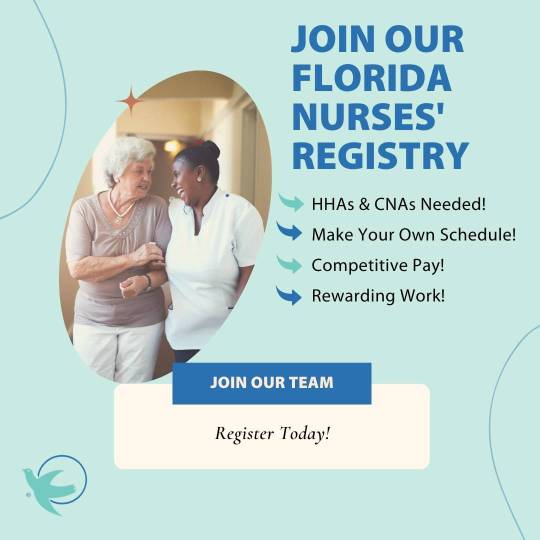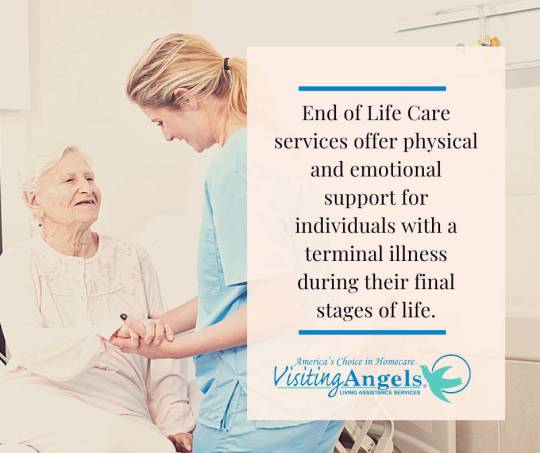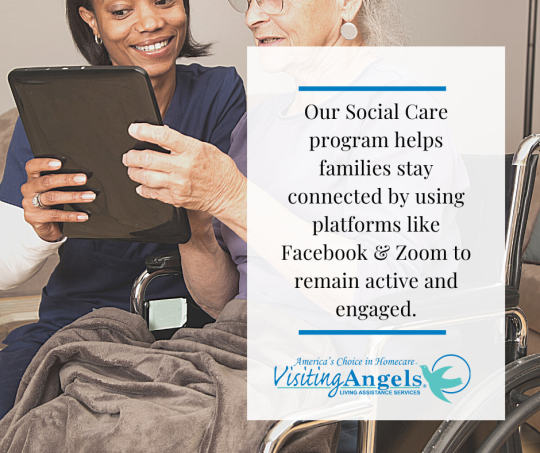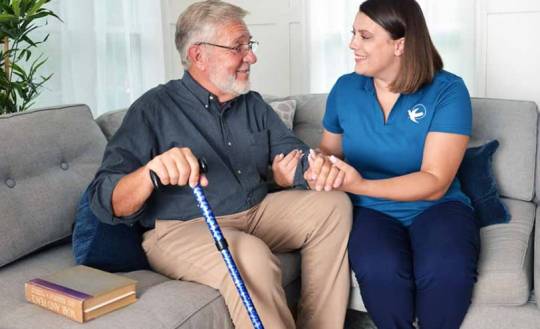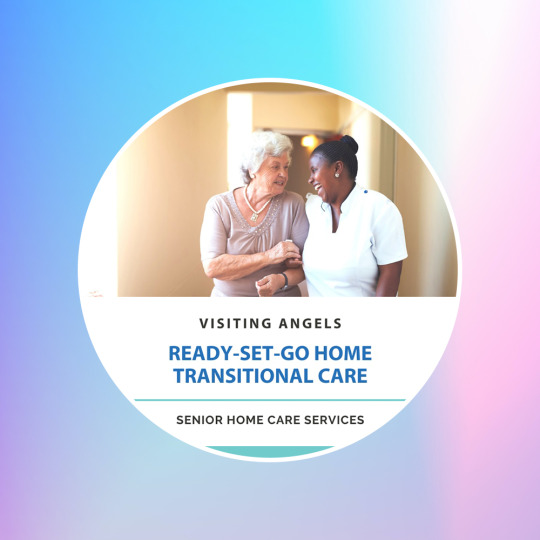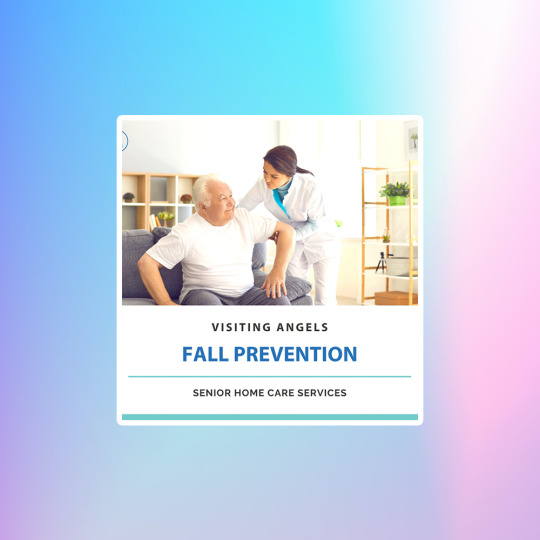Text
7 notes
·
View notes
Text
0 notes
Text
0 notes
Text
The Value of Maintaining Seniors' Social Engagement
According to studies, older persons who are socially engaged experience cognitive deterioration at a lesser rate than those who are not. This is so that social engagement with friends and relatives may assist in keeping the intellect fresh.
Maintaining social engagement is one of the most crucial things you can do to keep your elderly loved one content. They may feel better about themselves, lower their risk of depression, and even stave against dementia by continuing to participate in social activities.
Maintaining seniors' social connections helps them avoid loneliness and isolation, two issues that may harm their health. Higher rates of sadness, anxiety and suicide have been linked to loneliness.
The risk of heart disease and stroke is also greater among socially isolated elderly, according to a study. Interestingly, this differs from other risk factors like obesity, smoking, and inactivity.
Thankfully, there are several techniques to maintain social engagement with our older loved ones. Some simple suggestions are offering them transportation to activities and including them in group programs and events.
As they age, seniors often see a decrease in their sense of self. This may result from deceased loved ones, health issues, or new life milestones.
Increasing self-esteem via social connection is one strategy to overcome this. Seniors who participate in group activities feel as if they are doing something.
Also, they have a lesser chance of cognitive deterioration, which may result in dementia or Alzheimer's disease. A crucial aspect of brain function, episodic memory, is also preserved by strong friendships.
Seniors' physical and emotional health depends on maintaining social engagement. Moreover, it protects against dementia.
Lack of social connection, according to research, raises the risk of dementia. Those who have Alzheimer's disease in its early stages are most affected by this.
Another research found that maintaining close relationships with loved ones might lower the risk of cognitive deterioration. This is because it aids in creating a "cognitive reserve" that aids in defending the brain against harm brought on by memory loss and other symptoms of dementia.
Thankfully, you can meet new people as you age and maintain your social life. For instance, volunteering may be a fantastic way to meet new people and enhance your social life.
The ability to maintain elders' social connections is among the most crucial reasons to do so. Being close to friends and family may help individuals get through tough times and make them happy later in life.
In addition, being socially active keeps people physically fit and interested in activities like exercise, which has various positive effects on health for people of all ages.
Also, it helps to strengthen their immune systems, enabling them to fend off infections more effectively and quickly. Together with other health issues, it may lower the chance of depression and its symptoms.
Maintaining seniors' social engagement gives them a purpose and benefits their health in several ways. They can avoid sadness, loneliness, and isolation, which may make it challenging for older people to enjoy full lives.
Thanks to modern technology, there are many ways for older folks to interact with others. People of various ages may create personal accounts on well-known websites like Facebook and Twitter and engage with others without ever leaving their homes.
Several senior centers have professionals on staff who can teach elders how to utilize the Internet and participate in the online community. Seniors may discover affinity groups on these social media sites and even volunteer! These pursuits give one a feeling of direction and keep the mind occupied.
0 notes
Text
0 notes
Text
0 notes
Text
0 notes
Text
How to Plan for Moving Your Aging Parents
There are several factors to consider if you are planning to relocate your elderly parents. Some of these things are finding a senior center or adult day care in your new neighborhood and getting used to a new place.
If your parents are getting older, you may need to relocate them. It can be intimidating. There are, fortunately, a few things you can do to make the process less stressful.
The first thing you must do is devise a strategy. This includes where and when you intend to relocate them. You should also look for a reputable moving company.
Following that, you must prepare the new home. Doing your homework is a good place to start. Make sure you are familiar with the neighborhood, local activities, and senior services. A senior center or YMCA are examples of such facilities.
You'll also need to take precautions to safeguard your parents' health. Several companies specialize in home modifications for the elderly. Handrails on the stairs, a shower with a hand-held shower head, or an electric stair lift are examples of such modifications.
Involving family members is the best way to accomplish this. They will not only assist you with the heavy lifting, but they will also help to spread the workload.
Finding a local senior center or adult daycare facility can be a difficult decision. You might be concerned about leaving an elderly parent or loved one alone. On the other hand, finding a safe and dependable environment where your parent or loved one can receive support can make a significant difference in your health and quality of life.
Senior centers can provide your elderly loved one with the necessary social and medical services. They may also provide opportunities for physical activity and outings. This may aid in the preservation of mobility and independence.
During the day, adult day care provides a safe and engaging environment for elderly adults. Some facilities even encourage children to visit their elderly residents. These centers collaborate with other community organizations to ensure that your elderly loved one receives all of the care and services that he or she requires.
The cost of adult day care varies according to your state and the services you select. A six- to eight-hour day, for example, will cost between $25 and $100. You may be eligible for a government program that reimburses you for some of the costs, depending on your state.
When relocating your family or your elderly parents, you may need to consider a number of factors. Some of these factors include financial, legal, and logistical concerns. However, there are some small but important things you can do to help ensure that everyone has a smooth transition.
Obtaining an accurate estimate of your loved one's needs is one of the best ways to accomplish this. This will assist you in making appropriate plans. Using a social worker or other professional as a starting point can be beneficial. Consider whether your parent has access to services that will allow them to remain self-sufficient. If not, a reputable home care company may be able to assist.
In some cases, simply helping with chores can mean a lot to your parents. They may be surprised to learn that they can still assist with light housekeeping and meal preparation. You might even be able to earn enough money to cover some of your expenses.
Moving your elderly parents into your home is something that should be done with caution. It must not only be safe, but it must also be financially beneficial to you. It can be a difficult emotional decision, and it is not suitable for everyone.
It is difficult to adjust to a new environment. It can be difficult to adjust to new people and a new set of rules. However, if you make an effort to visit your parents' new home as frequently as possible, you can help ease the transition.
If you're relocating an elderly parent, be sure to listen to them and understand that they may have a more difficult time adjusting than you do. They may miss their neighbors or friends. Certain activities may need to be discontinued to give them more time to adjust. Also, don't assume they'll be able to keep their independence. Your parents will require your help with their daily routines and medications.
0 notes
Text
0 notes
Text
0 notes
Text
0 notes
Text
5 Facts About Parkinson's Disease You Might Not Know
Whether you have had Parkinson's disease for a long time or have recently been diagnosed, you can learn a few things from these 5 Things You May Not Know About Parkinson's Disease. Parkinson's disease affects how you spend your time, but there are symptoms, tests, and treatments available to help you manage the disease.
Visual hallucinations, changes in memory, poor attention, and difficulties with visual-spatial tasks are all symptoms of Lewy bodies. They may also be associated with autonomic dysfunction. Breathing, digestion, blood pressure, and sweating are all affected by this dysfunction. Some people may develop depression as well.
Consult your doctor if you suspect you or a loved one has a Lewy body. They can assist you in diagnosing your condition and connecting you with support groups. They can also look for other possible causes of your symptoms. They can also assist you in locating a memory clinic. They may also refer you to a physical therapist or occupational therapist, depending on the severity of your symptoms.
Lewy bodies are sticky protein deposits that form in the brains of Parkinson's disease patients. The protein is thought to cause cognitive issues.
Parkinson's disease has a wide-ranging impact on your life. It has an impact on your daily activities, work, and social activities. It is a neurological condition that has an impact on muscle tone, speech, and balance. It can cause fatigue, muscle aches, and restless leg syndrome, among other symptoms.
It can be frightening to learn that you have Parkinson's disease for the first time. You may be concerned about losing your independence or your ability to carry out your daily activities. You can, however, learn how to manage the disease. You can also learn how to cope with the symptoms of Parkinson's disease.
You should be aware of the signs of depression if you have Parkinson's disease. These symptoms may appear early in the disease process and worsen as it progresses. Depression symptoms can be alleviated with medication.
Parkinson's disease symptoms appear gradually and may affect one or both limbs. Tremors, stiff muscles, slowness, and stooped posture are some of the symptoms. Motor symptoms worsen as the disease progresses.
Parkinson's disease is a central nervous system neurodegenerative disease. The loss of dopamine, a chemical messenger in the brain, causes it. This chemical aids in the control of movement and a variety of other functions. It has an effect on nerve endings in the globus pallidus, a small region of the brain that controls movement.
Parkinson's disease symptoms can also include difficulty swallowing and constipation. Patients may also feel pain all over their bodies. Along with physical symptoms, people with Parkinson's may experience difficulties with speech, writing, memory, and coordination.
Parkinson's disease symptoms are caused by a decrease in dopamine levels in the brain. Medication can treat Parkinson's disease, but it does not cure it. These drugs raise dopamine levels in the brain. Taking them as directed will help you control your symptoms and improve your overall quality of life.
Despite new diagnostic tools, many questions remain about Parkinson's disease. Researchers are attempting to determine the cause of the disease and how it manifests itself. The disease is thought to affect between one and 1.5 million Americans.
The breakdown of dopamine, a chemical in the brain, causes the disease. This chemical aids in the coordination of the millions of nerve cells involved in the movement. Movement problems occur when dopamine is depleted. Tremors and stiffness are examples of this.
There is no single laboratory test that can be used to diagnose Parkinson's disease. A diagnosis is made based on the patient's symptoms and medical history. The doctor may use imaging tests in addition to physical symptoms. A dopamine transporter scan is one of the imaging tests that may be performed. This scan employs a radioactive tracer to produce detailed images of the brain's dopamine system.
Deep brain stimulation for Parkinson's disease has been shown to slow the progression of this neurodegenerative condition. It may also aid in the treatment of tremors, dyskinesia, stiffness, and other symptoms. This method stimulates an electrode implanted in the brain with electrical pulses.
It is a viable alternative to medications, which can have severe side effects. Deep brain stimulation works best when combined with other treatments. It could be life-changing for some people. It may aid in lowering medication dosages and improving quality of life.
Deep brain stimulation is not a cure for Parkinson's disease. It may, however, provide symptom relief, reduce downtime, and minimize side effects. This treatment is most beneficial for patients who have improved motor symptoms. It may also aid in the protection of brain cells.
0 notes
Text
The digital revolution is transforming senior health care
You are probably aware that the digital disruption in senior health care is spreading quickly and has the potential to alter how healthcare is provided, whether you are a patient, a clinician, or an employee of a healthcare company. The essay that follows discusses some of the developments and problems brought on by the digital disruption in senior healthcare. It looks at the significance of implementing modern technology to enhance senior citizens' healthcare.
Technology has long been used to deliver healthcare, but recent developments have made it possible for new types of businesses to enter the market and provide innovative services. In a word, they are utilizing technology to raise patient access to care, lower expenses, and increase worker productivity and wellness.
The majority of new technology's benefits may go to front-line employees. Their happiness quotient can go up, and they can spend more time with their families thanks to technologies that make them more successful and efficient. In view of the escalating cost of healthcare, this is especially true.
The AMA conducted a survey of its members to determine how many are utilizing cutting-edge technologies. According to the findings, more than one-third of physicians anticipate implementing at least one new technology this year. In order to determine how cutting-edge medical technologies might be adopted into clinical practice, the AMA also conducted a benchmark test. According to the research that followed, the best applications of new technology would be those that boost patient welfare, improve doctor-patient communication, and minimize paperwork.
The AMA has done a commendable job of encouraging the adoption of cutting-edge technology, but there is always room for improvement. They might be using innovative technical methods in particular to cater to the needs of their elderly patients.
Medicare and Medicaid have recently implemented a number of different payment schemes. These models aim to persuade providers to switch from the more conventional fee-for-service model to a more value-based one. These approaches pay caregivers for providing effective care. They also demand that providers make investments in both infrastructure and personnel.
From the start of a patient's care cycle to its conclusion, physicians are responsible for their results under this new approach. This covers preventing the spread of the illness, relapses, and consequences.
The public demand for higher quality care is fueling the shift away from the fee-for-service reimbursement paradigm, which has historically placed a premium on the number of services.Through coordinated care pathways, this innovative paradigm encourages providers to enhance patient care. It also rewards healthcare professionals for omitting therapies and delivering treatment in the appropriate settings.
Providers will need to change their business models in addition to the payment mechanisms. This entails introducing new services and implementing more costly initiatives. Additionally, they will need to enhance their diagnostic exams. This will increase their costs and expose them to additional financial risk.
Providers are expanding the number of doctors and experts on their care teams in order to promote more coordinated care. To help patients navigate their care, hospitalists and navigators are also being added. The challenges faced by patients have been positively impacted by these partnerships.
Technology use with senior citizens might be challenging. However, some technological advancements can be advantageous for senior citizens. Mobile health (mHealth) developments like tablets and smartphones are among them. Seniors who use these devices can communicate with healthcare professionals and receive medical care. These gadgets also offer real-time feedback and health-related data.
Older folks may be hesitant to utilize technology out of concern for infections, phishing schemes, pop-up ads, and privacy concerns. Similar to younger people, older people may worry about damaging their technology. This anxiety could result from a lack of confidence.
Ignorance may also limit the ability of older people to use technology.The effect of this ignorance may be dissatisfaction and a potential sense of helplessness.
The social contact made possible by technology is probably the most astounding technology for older individuals. Older folks are driven to maintain their social connections. However, a larger prevalence of residential care is linked to social isolation. This is particularly valid for senior citizens who live alone. Using technology to encourage social connection may result in less loneliness and isolation.
The best technology for older people is technology designed specifically for their needs. A patient-centered app design, caregiver support, or a combination of the three may be part of this.
0 notes
